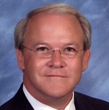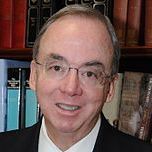By Bob Allen
An ad-hoc task force appointed to study Calvinism’s impact on the Southern Baptist Convention says the 2000 Baptist Faith and Message is a sufficient guide for orthodoxy in the nation’s second-largest faith group behind Roman Catholics.
“We should call upon all Southern Baptists to promote the unity we share within The Baptist Faith and Message and, while recognizing that most Southern Baptists will believe and teach more than what that confession contains, we must never believe or teach less,” the 16-member task force says in a 3,200-word report published online at SBC Life.
 An informal advisory group appointed by SBC Executive Committee head Frank Page, the task force will not report officially to the convention, but Page is expected to reference it in his report to messengers at the SBC annual meeting scheduled June 11-12 in Houston.
An informal advisory group appointed by SBC Executive Committee head Frank Page, the task force will not report officially to the convention, but Page is expected to reference it in his report to messengers at the SBC annual meeting scheduled June 11-12 in Houston.
Page named the group last year amid statistics showing that recent seminary graduates embraced a rigid Calvinism at percentages far higher than the people in Southern Baptist pews. Convention leaders worry that young pastors bringing those views into churches can be divisive, particularly if the congregation is unaware of the differences between the two views.
They also fear division among pastors and denominational leaders, as rumor mills circulate reports both of Calvinists trying to “take over” the convention and of qualified scholars being denied teaching jobs because they adhere to Calvinist views.
 The committee, chaired by Union University President David Dockery, included both Calvinists, who emphasize God’s sovereignty and downplay free will, and others who accept parts of Calvinism, such as mankind’s fallen state and belief that a truly saved Christian cannot fall from grace, but not ideas like God predetermines who is saved or damned and that Jesus died only for the elect.
The committee, chaired by Union University President David Dockery, included both Calvinists, who emphasize God’s sovereignty and downplay free will, and others who accept parts of Calvinism, such as mankind’s fallen state and belief that a truly saved Christian cannot fall from grace, but not ideas like God predetermines who is saved or damned and that Jesus died only for the elect.
While acknowledging “points of tension” between the two sides, the group celebrated broad agreement that Southern Baptists stand united on the truthfulness of Scripture.
“We should be thankful that these are the issues Southern Baptists are now discussing, even as liberal denominations are debating the full abdication of biblical morality and allowing the denial of central doctrines,” the report said. “We are, seen in this light, blessed by the discussions that come to Southern Baptists who want to affirm the fullness of the faith, not its reduction.”
They found agreement on the Baptist Faith and Message’s 138-word article on “God’s Purpose of Grace,” but differences on explanations about matters like why only some are saved and if sinners inherit only Adam’s fallen nature or also his guilt.
While significant, those differences need not be insurmountable, the task force agreed, calling for trust and dialogue between the opposing views.
Regarding convention politics, the leaders agreed: “We should expect all leaders in the Southern Baptist Convention and all entities serving our denomination to affirm, to respect and to represent all Southern Baptists of good faith and to serve the great unity of our Convention. No entity should be promoting Calvinism or non-Calvinism to the exclusion of the other. Our entities should be places where any Southern Baptist who stands within the boundaries of The Baptist Faith and Message should be welcomed and affirmed as they have opportunities to benefit from, participate in, and provide leadership for those entities.”
To avoid theological conflict in churches, the task group encouraged “all candidates for ministry positions in the local church to be fully candid and forthcoming about all matters of faith and doctrine” and for pulpit and staff search committees to similarly “be fully candid and forthcoming about their congregation and its expectations.”
